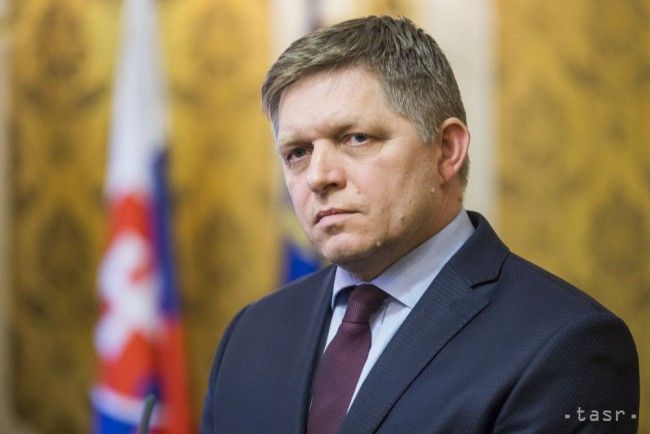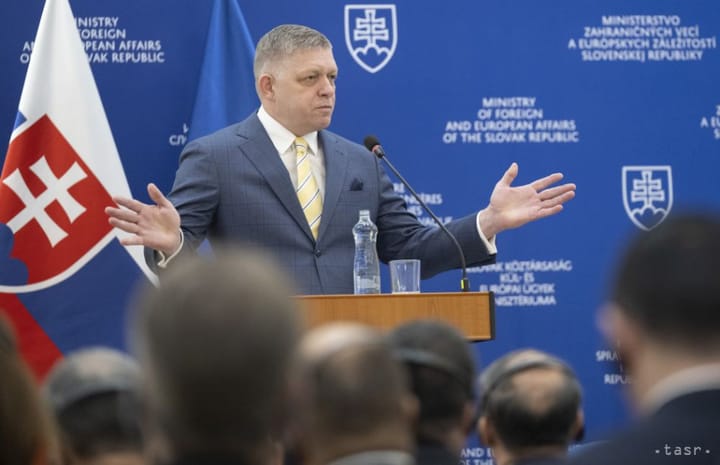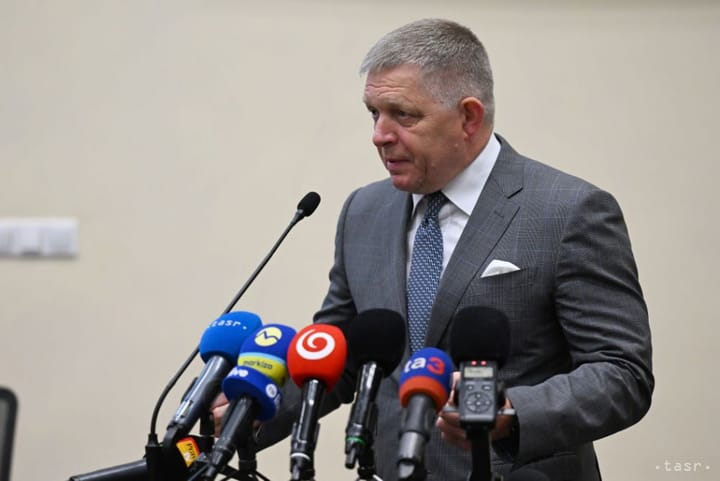Fico: Eurozone Should be Closer-knit, Slovakia Aims to Be in Its Core

Bratislava, June 2 (TASR) – The eurozone should be even more united internally and Slovakia wants to be part of its core, Prime Minister Robert Fico (Smer-SD) said after a Solidarity and Development Council (RSR) session in Bratislava on Friday.
The meeting involved a discussion on Slovakia’s position in the European Union and on the EU’s further direction. European Commission Vice-president for Energy Union Maros Sefcovic and Foreign and European Affairs Minister Miroslav Lajcak were also in attendance. “There’s pressure on eurozone countries to be ever closer-knit and work much closer together,” said Fico, adding that such integration will also involve the need to adopt highly sensitive decisions, including in social and tax policies.
“Under no circumstances must Slovakia disregard or neglect certain processes that have been launched, such as talks as well as decisions that may be taken soon and that are aimed at bringing countries that use the euro closer together,” said the premier.
“Our official position is that we’re in favour of deepening the European integration, because this has proven to be extraordinarily successful. The results of Slovakia’s involvement in the process are highly positive,” he added.
With that in mind, if such deepening entails the creation of a sort of ‘core’ in the EU, Slovakia will aim for not being left out, he said.
“It won’t be easy, the decisions that we will need to make in financial, economic and social areas will be serious. The decisions will also concern defence and security, where the closer integration may involve closer ties in military expenditures,” said Fico.
RSR will next meet on June 29 to discuss the social aspect of further European integration. The council brings together a range of stakeholders, including social partners, investors, representatives of the self-employed, regional administration, academia and churches.
Lajcak weighed in by saying that the Government has received a “strong mandate”, as all of the meeting’s participants said that they expect Slovakia to be part of the EU’s core in the future.
According to Sefcovic, a similar discussion to the one launched in Slovakia is expected to take place in all EU-member states. He noted that the discussion will involve topics concerning the Social Pillar, social rights and social convergence.
“People associate the European Union with social protection and with the quality of life, and it’s important for the EU’s future to make sure that it continues to be a place where social rights are accorded the highest standard,” said Sefcovic.



